Best gaming headsets 2026: top headsets tested and ranked
Great gaming headsets for PC, PS5, Xbox Series X|S and Nintendo Switch

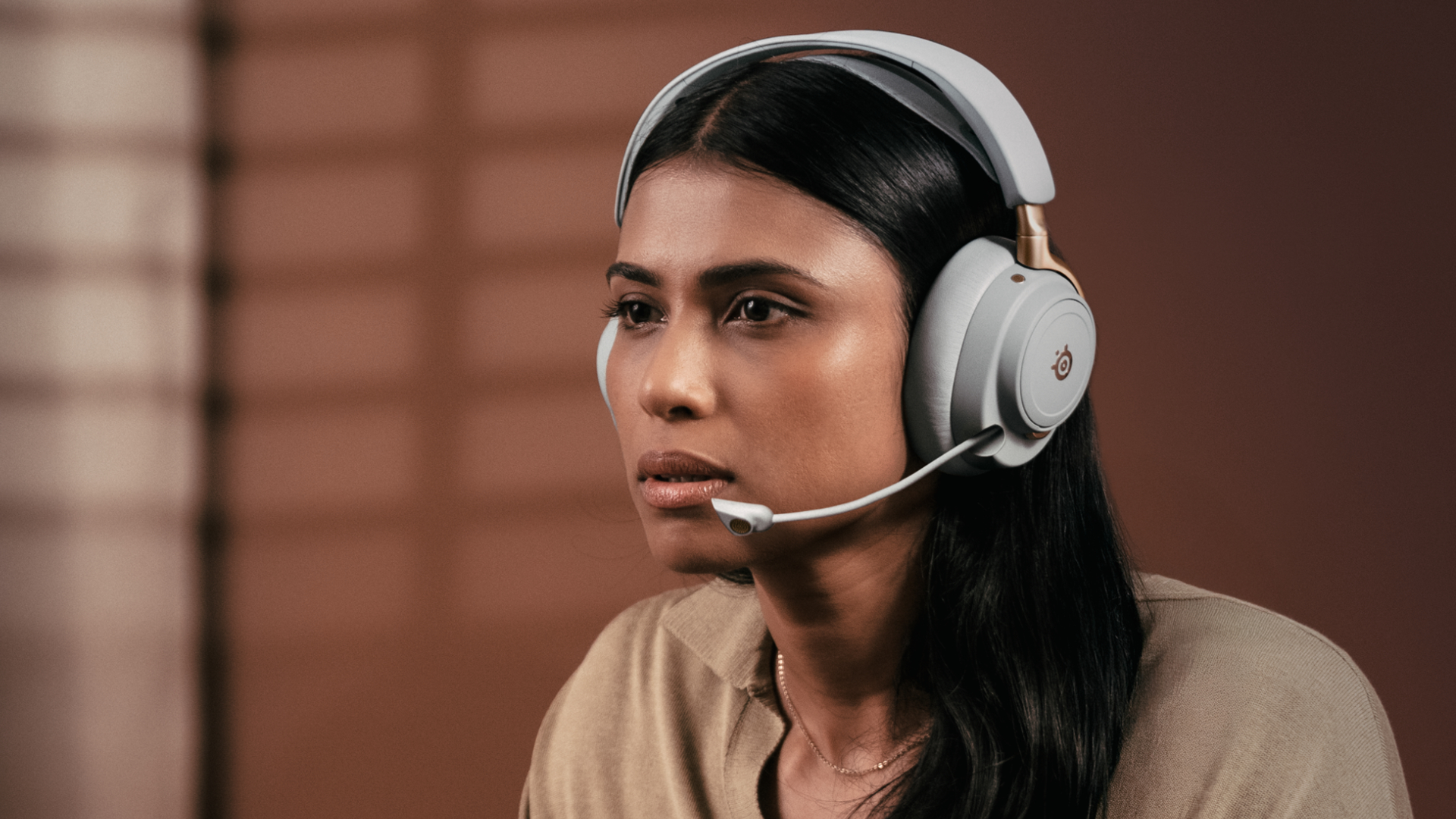
Get all the latest news, reviews, deals and buying guides on gorgeous tech, home and active products from the T3 experts
You are now subscribed
Your newsletter sign-up was successful
A good gaming headset can be one of the biggest single upgrades you can make to your everyday gaming experience - it'll instantly make games far more immersive. With so many on the market, though, it's far from easy to sift through them to find those that are truly worth your money.
These top-tier gaming headsets will give you features such as surround sound, automatic noise reduction, and boosts for quieter sounds and dialogue – as well as fantastic audio in general, of course. They'll all pair superbly with one of the best gaming laptops, and we're not exaggerating when we say that the right gaming headset can actually improve your chances of winning. The more you pay, the more connectivity, battery, voice quality and cancellation features you can expect.
Our advice is to not just go for the cheapest option without any other considerations though – we'd say finding the right cans to clamp on top of your head can be as important as investing in the best gaming monitor and the best gaming chair too. Read our jargon explainer and how to choose sections further down the page to give you a deeper dive into which gaming headset will be perfect for you.
T3's Top Picks
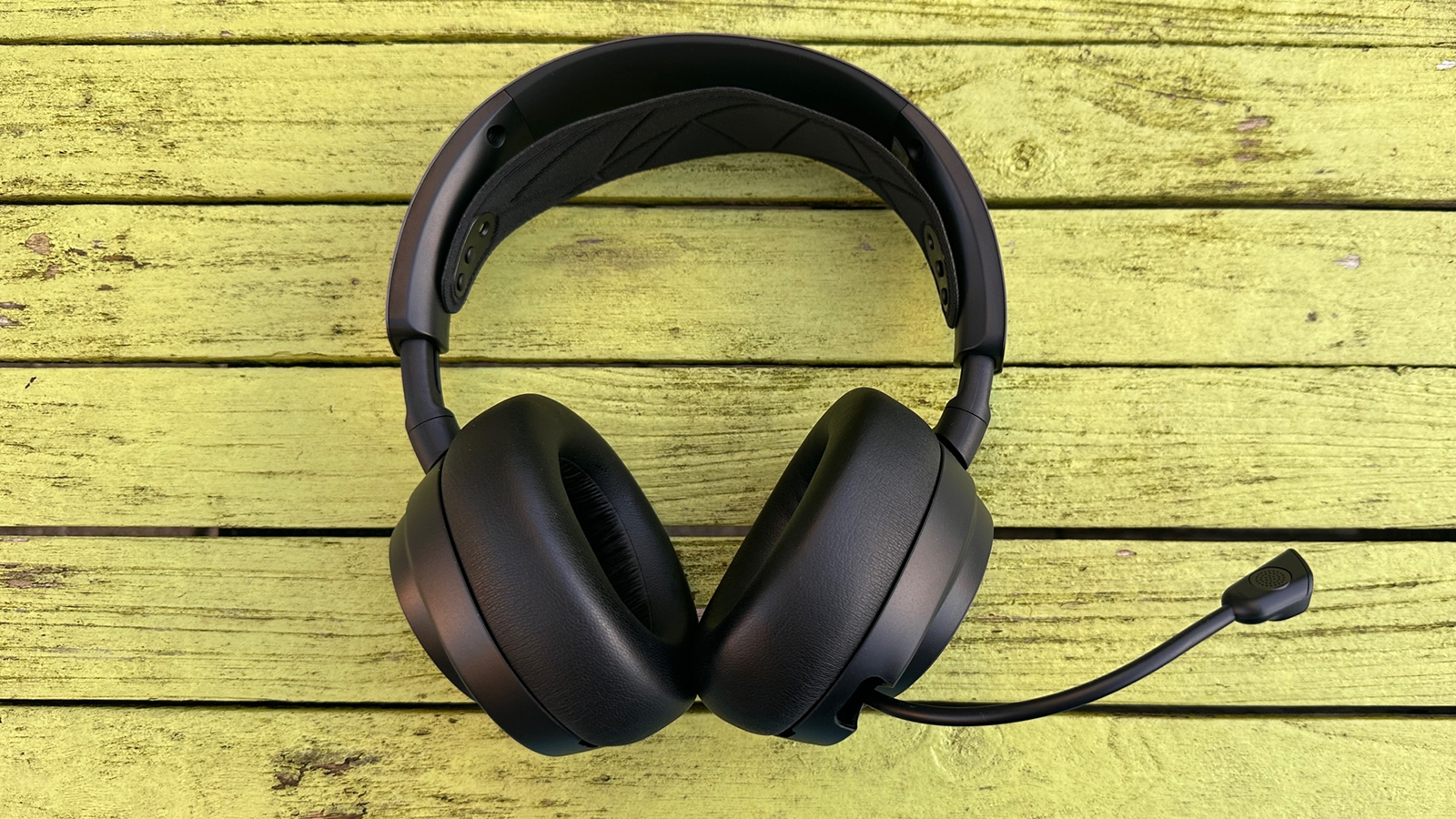
Best high-end
SteelSeries managed something impressive with the Arctis Nova Pro Wireless, making battery woes a thing of the past. That it also sounds superb is the bedrock that makes this a top-class pick.
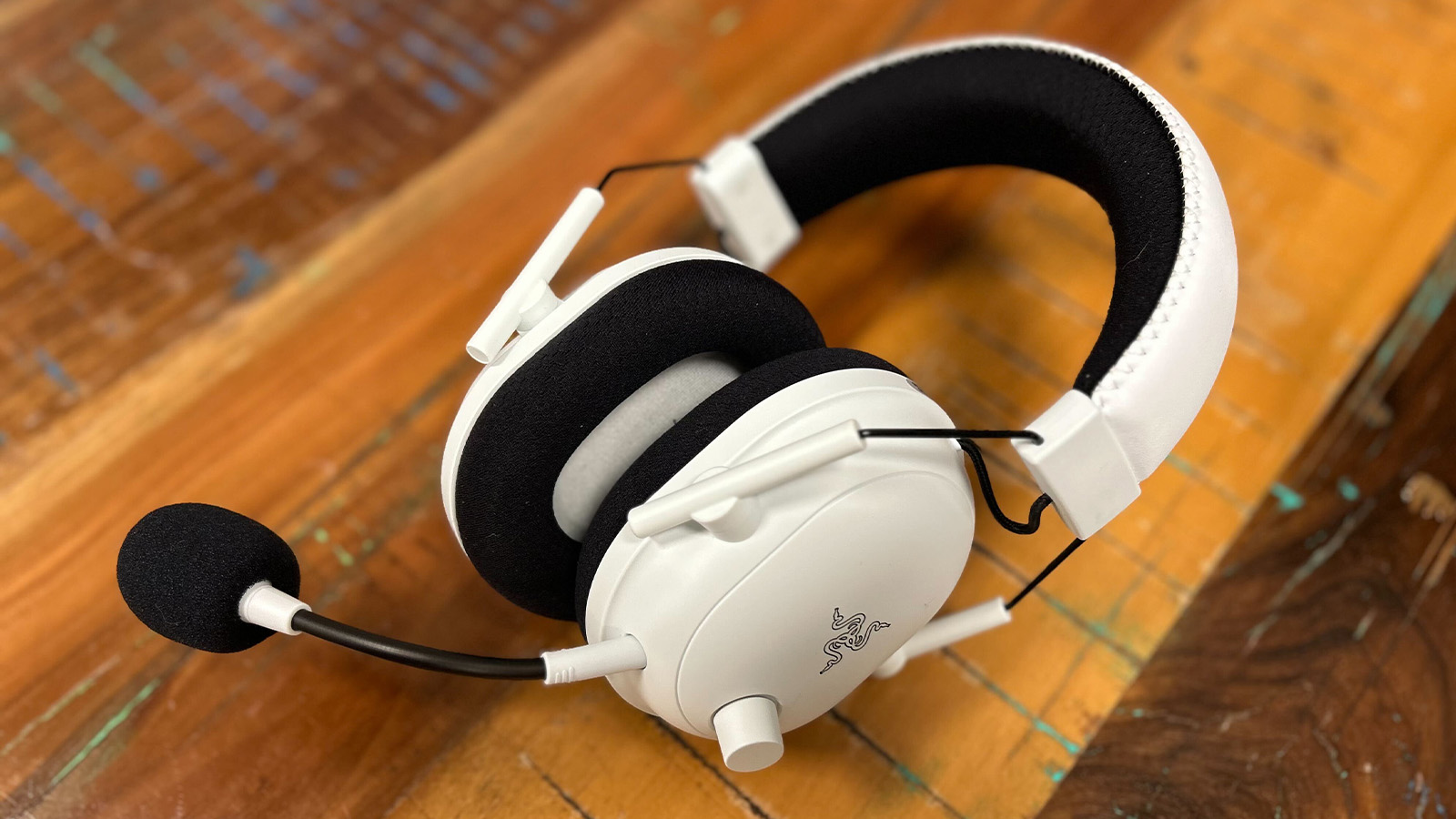
Best premium headset
This is a truly great gaming headset, and well worth the outlay if you can afford it: the Razer BlackShark V2 Pro brings with it brilliant audio, a comfortable fit, and a selection of sound profiles you can pick between.
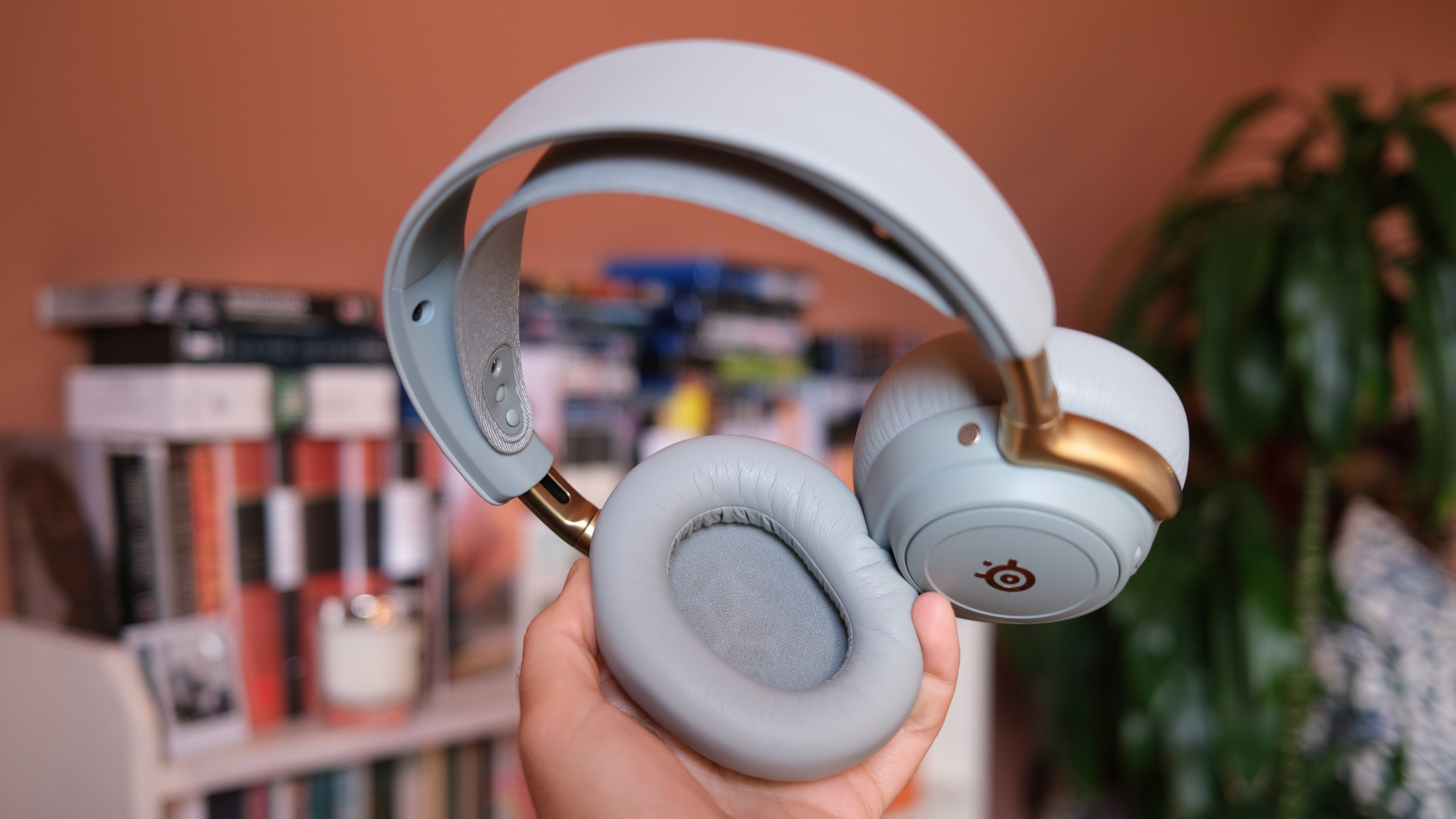
Best luxury headset
SteelSeries' most expensive headset won't make sense for most people, but those with a high budget can rest easy knowing it's the best-sounding wireless headset we've ever tested at T3.

As long as he's been a tech journalist (which is well over half a decade at this point), Max has been testing gaming headsets – and he's now had hands-on time with literally hundreds of different models. He's used every headset on this list, and many more besides, making him perfectly placed to figure out which ones should occupy which slots in our rankings.
Update 3 October 2025: Added the SteelSeries Arctis Nova Elite as the best luxury option, rejigged some links to other helpful content for you, and added a section comprised of highly commended headsets that just missed out. Update 4 July 2025: Added a swathe of new headset choices, including our 2025 award winner, the Razer Kraken V4 Pro, to thoroughly refresh our list of recommendations.
Best gaming headset overall

Specifications
Reasons to buy
Reasons to avoid
The SteelSeries Arctis Nova Pro wireless would be a superb noise-cancelling high-end pick even if it was just a normal headset, but it also has a huge trick up its sleeve. Hot-swappable batteries that charge in its USB dock mean that you can rely on a headset that will never actually run out of battery.
Whether you're on PC or PlayStation (with a separate version for Xbox gamers), this headset's sound quality is absolutely superb. It's precise enough to be relied upon in competitive play, but also powerful enough to make immersive single player options really shine.
Plus, it's one of the most comfortable high-end headsets we've tried, with pillowy cushions that are still soft even after hours of use. If you're looking for a headset that pushes the envelope, these are a top choice even a couple of years after release.
Best gaming headset for most people


Specifications
Reasons to buy
Reasons to avoid
You don't have to get very far through our Razer BlackShark V2 Pro review to realise just how much we love these headphones: we described them as "pretty much everything you need in a gaming headset", combining an "uber-comfortable" fit with sound performance that offers a "whole lot to love".
The 70 hours of battery life between charges is impressive, the wireless connectivity (either via a 2.4GHz USB dongle or Bluetooth) is simple to set up and doesn't show any signs of lag, and the companion app for mobile comes with an equaliser option you can use to get the sound exactly to your liking.
Add in features like 7.1 channel surround via THX spatial audio, and we're happy to declare this as the best premium gaming headset around. The cost of these headphones isn't going to suit everyone of course, but if they are within your budget, you're not going to be disappointed.
Best luxury gaming headset
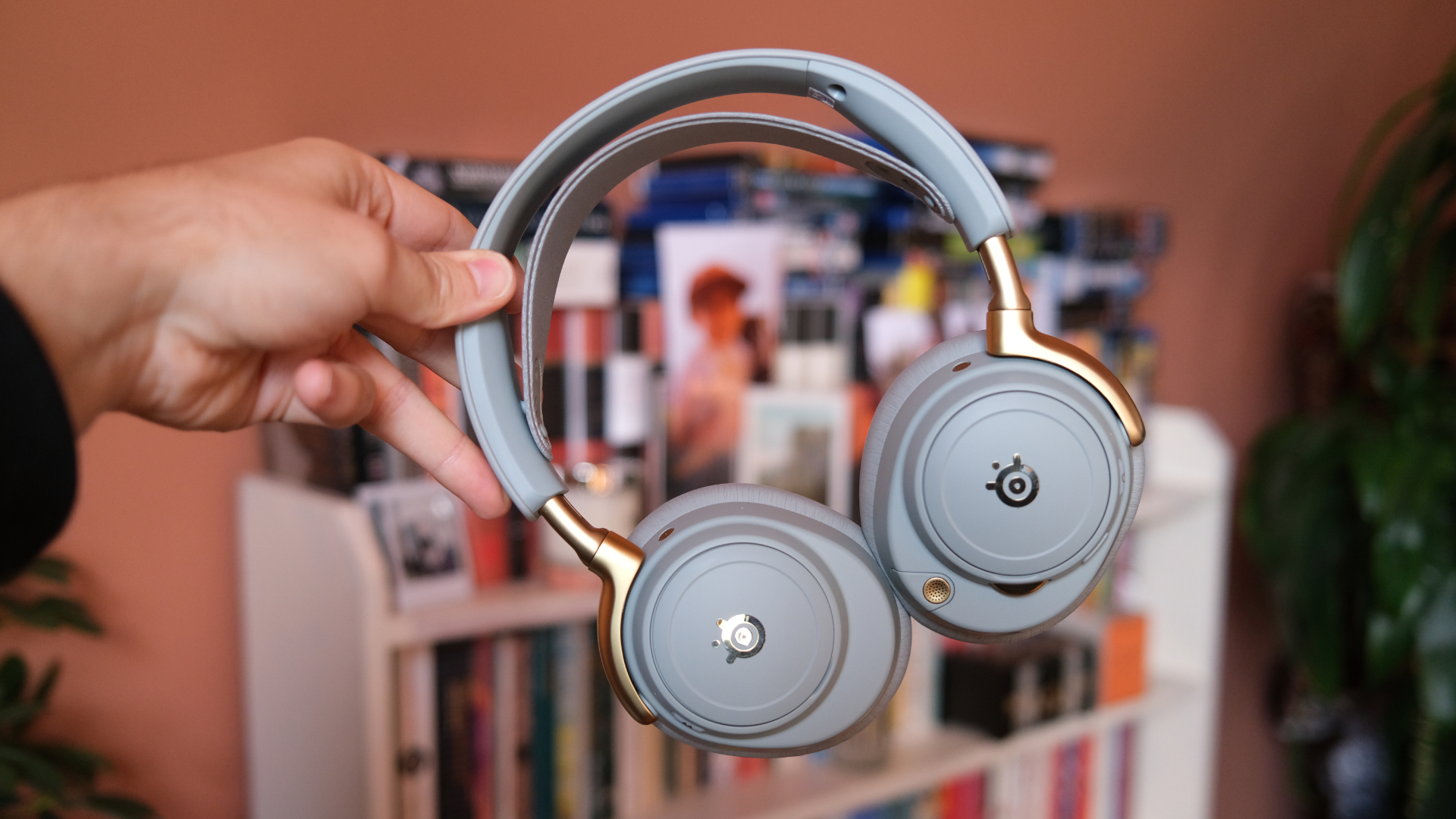
Specifications
Reasons to buy
Reasons to avoid
Its absolutely mammoth £600 price tag knocks it out of contention for the top spot as the best headset to actually buy, but for those with no restrictions on their budget to speak of, the SteelSeries Arctis Nova Elite is probably the best headset we've ever tested at T3 for sheer quality.
It upgrades on the Nova Pro Wireless in some telling ways, including longer battery life, sturdier build quality and widened connectivity (including working with all consoles in one version). Plus, it's the first wireless gaming headset to meet the specifications for Hi-Res audio on PC, which makes its audio fidelity something you really have to hear. Nothing on the market can currently compete with that boast.
At twice the price of the Nova Pro Wireless, though, most people will be fine with the former (which is an unbelievably good headset). Still, those wanting the very best of the best can enjoy the Nova Elite knowing that nothing else currently comes close to it.
Best lightweight gaming headset
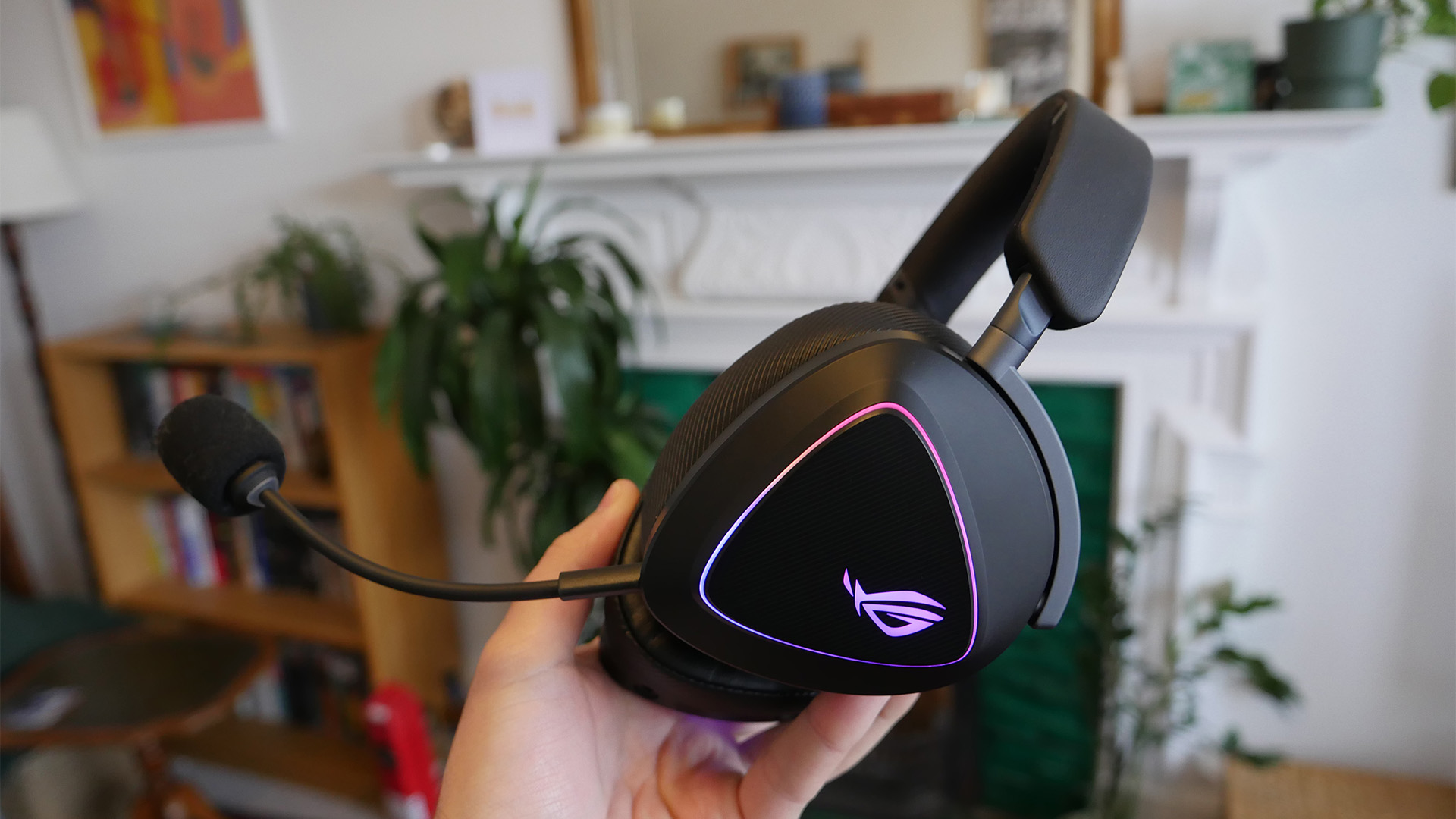

Specifications
Reasons to buy
Reasons to avoid
From gaming hardware veterans Asus comes the very impressive Asus ROG Delta II headset, which works with just about every device out there – though the customisation and equaliser software is only available for Windows. It's well worth considering, and can increasingly be found at nice discounts if you're patient.
Its audio quality is stellar, and is made all the more impressive by battery life that can stretch all the way to 110 hours on a charge if you turn off its RGB lighting.
The headset is comfortable to wear for extended periods of time, and is well put together too. With extras like simulated 7.1 surround sound and support for the high-resolution MQA audio format included too, it's easy to see why this made it onto our best gaming headsets list.
Best gaming headset for noise-cancelling
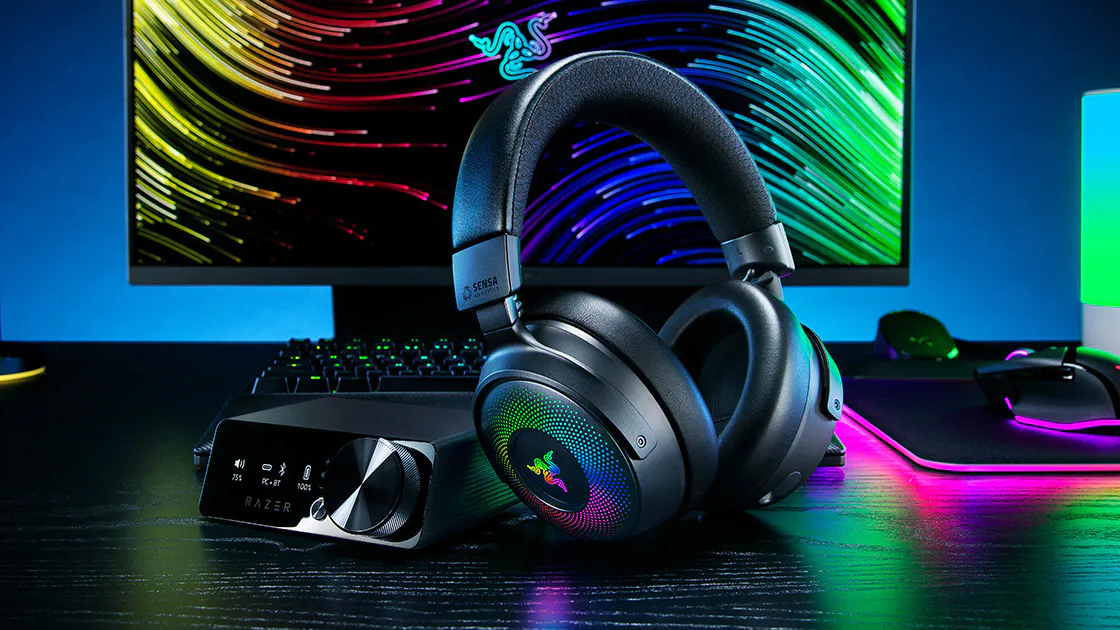

Specifications
Reasons to buy
Reasons to avoid
The Razer Kraken V4 Pro is a beast by any definition of the word – a huge and powerful gaming headset that packs in a major trick that almost no rivals can match, in the form of advanced haptics. It'll subtly vibrate along with your gameplay, providing a level of immersion that has to be tried to be believed.
It really does help you feel more engaged with what you're playing, although it helps that this flagship-level headset also sounds just as impressive as you'd expect. It's the complete package, which also means that it costs a fair whack, and while I think that the SteelSeries Arctis Nova Pro is ultimately a little better, those who like Razer's brand will find a lot to love here.
Best gaming headset for multi-platform
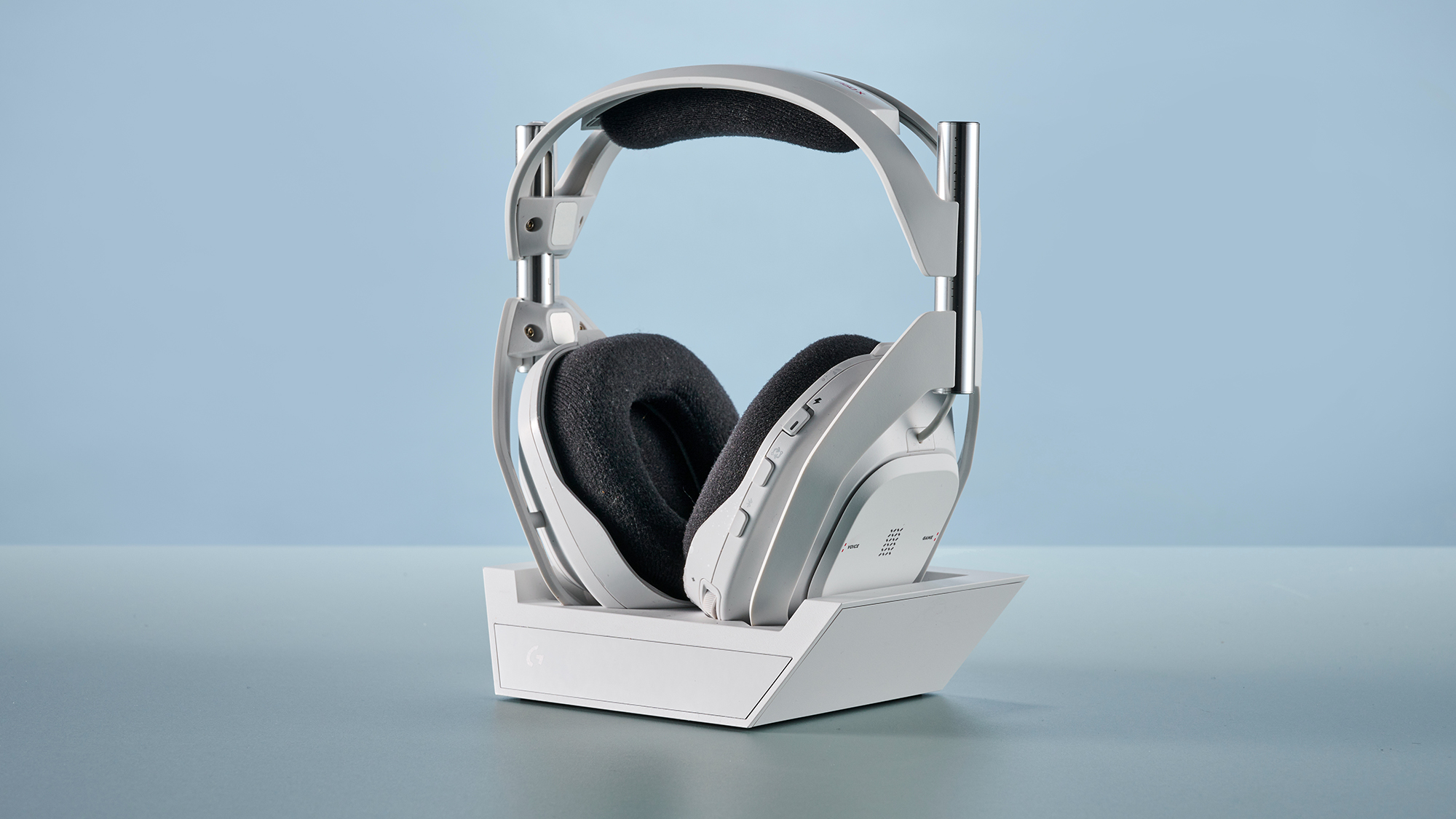
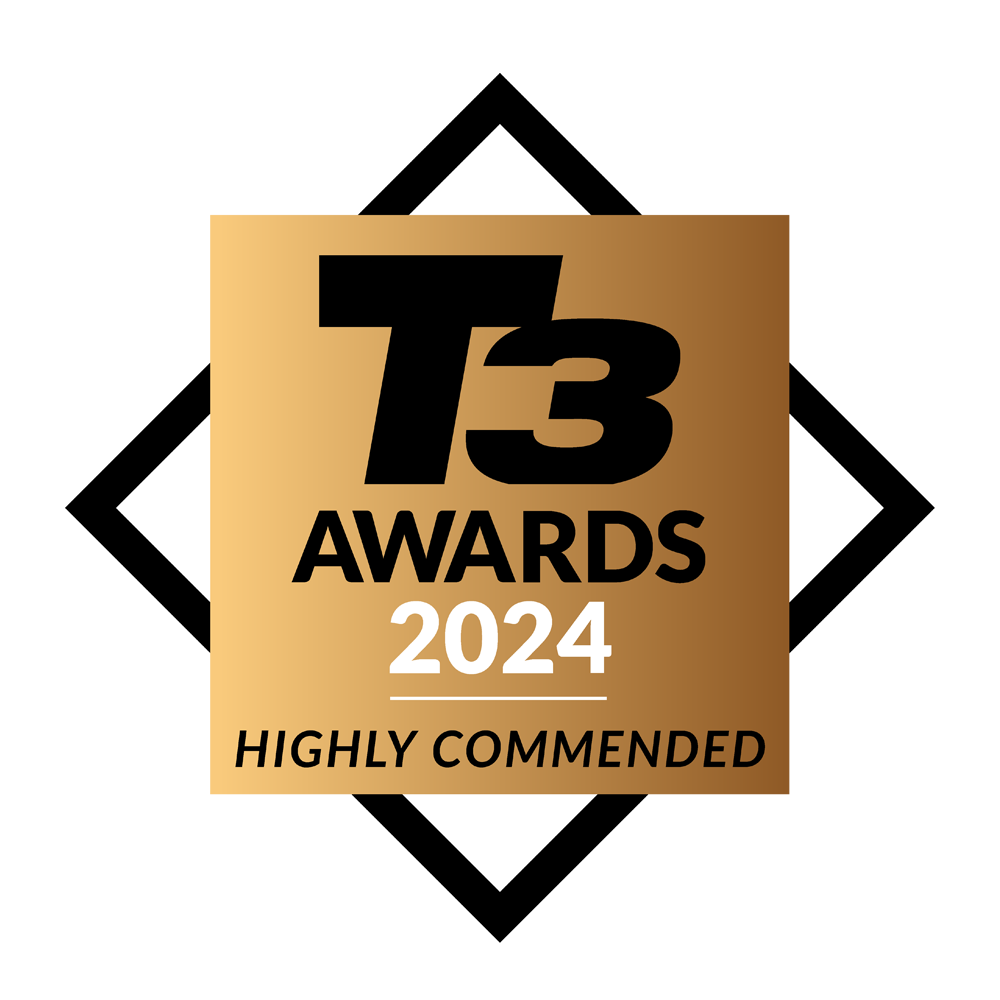
Specifications
Reasons to buy
Reasons to avoid
Many of you will play on more than one gaming device, and in that scenario the Logitech Astro A50 X headset is pretty much perfect: it can move between PC, Xbox Series X, PlayStation 5 and more with ease, with a touch of a button all that's needed to jump between different devices.
In our detailed Logitech Astro A50 X review, we highlighted "top-quality chat audio and game sound", as well as an "easy on the eye" design and well thought-out integrated controls – including a volume rocker. Being able to make quick, in-game adjustments is really helpful.
The headset connects to a futuristic-looking base station, which is how a lot of the magic happens here: it's through this piece of hardware that you can connect up multiple gaming devices and switch between them easily. It's a powerful setup that justifies the rather expensive price.
Honourable mentions
AceZone A-Spire Wireless: This excellent headset is aimed at super-competitive players, and has a price to match. Its noise-cancelling is superb, but its design is a little lacklustre.
Audeze Maxwell Wireless: Audeze's planar magnetic drivers sound absolutely brilliant, and there's a huge amount to love here, but over time its lack of ANC has seen it slip down our rankings.
Corsair HS80 Max Wireless: Corsair doesn't put much of a foot wrong with these solid mid-range wireless cans, but they're not quite interesting enough to merit a place on our list.
How to choose the best gaming headset for you
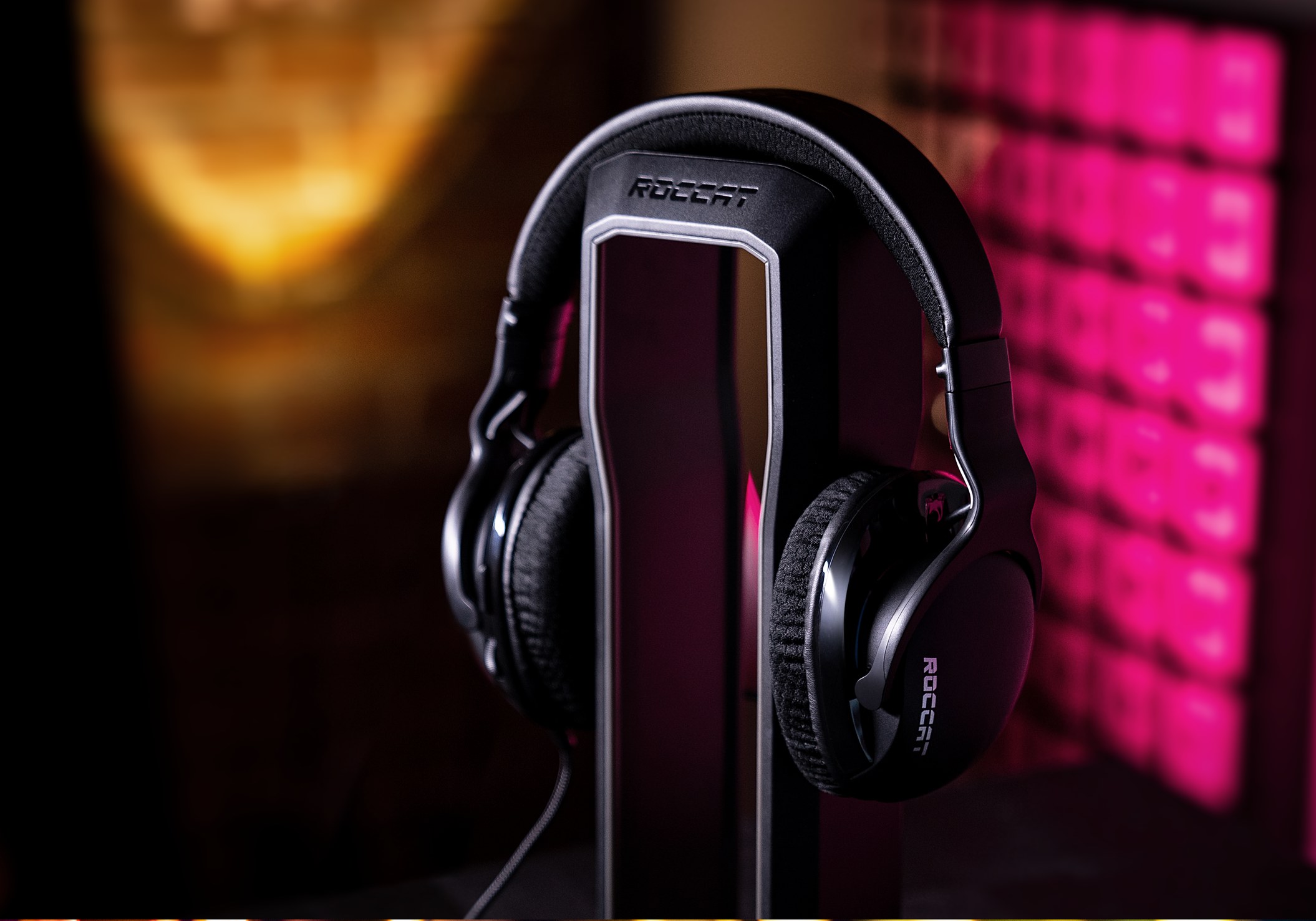
There are a huge number of headsets and headphones out there for the keen gamer, with most manufacturers offering multiple products that only vary a small amount. While it might be easy to just go with a certain model because of a recognisable brand, before you spend any of your hard-earned cash, it's worth weighing up exactly what you need from your next headset.
Do you want a great-sounding headset for gaming that can also do double duty as a regular pair of headphones, for example? If so, you need to go for a pair of on-ears and, for style and portability issues, one with a built-in or detachable mic.
Equally, if you are looking for a dedicated, heavy duty headset for streaming and super-long gaming sessions, you'll need a set with excellent battery life, a good boom mic, and an over-ear comfortable fit. Everyone's needs vary to some extent, and the best gaming headset of 2026 is going to be different for everyone.
How we've curated our best gaming headset guide
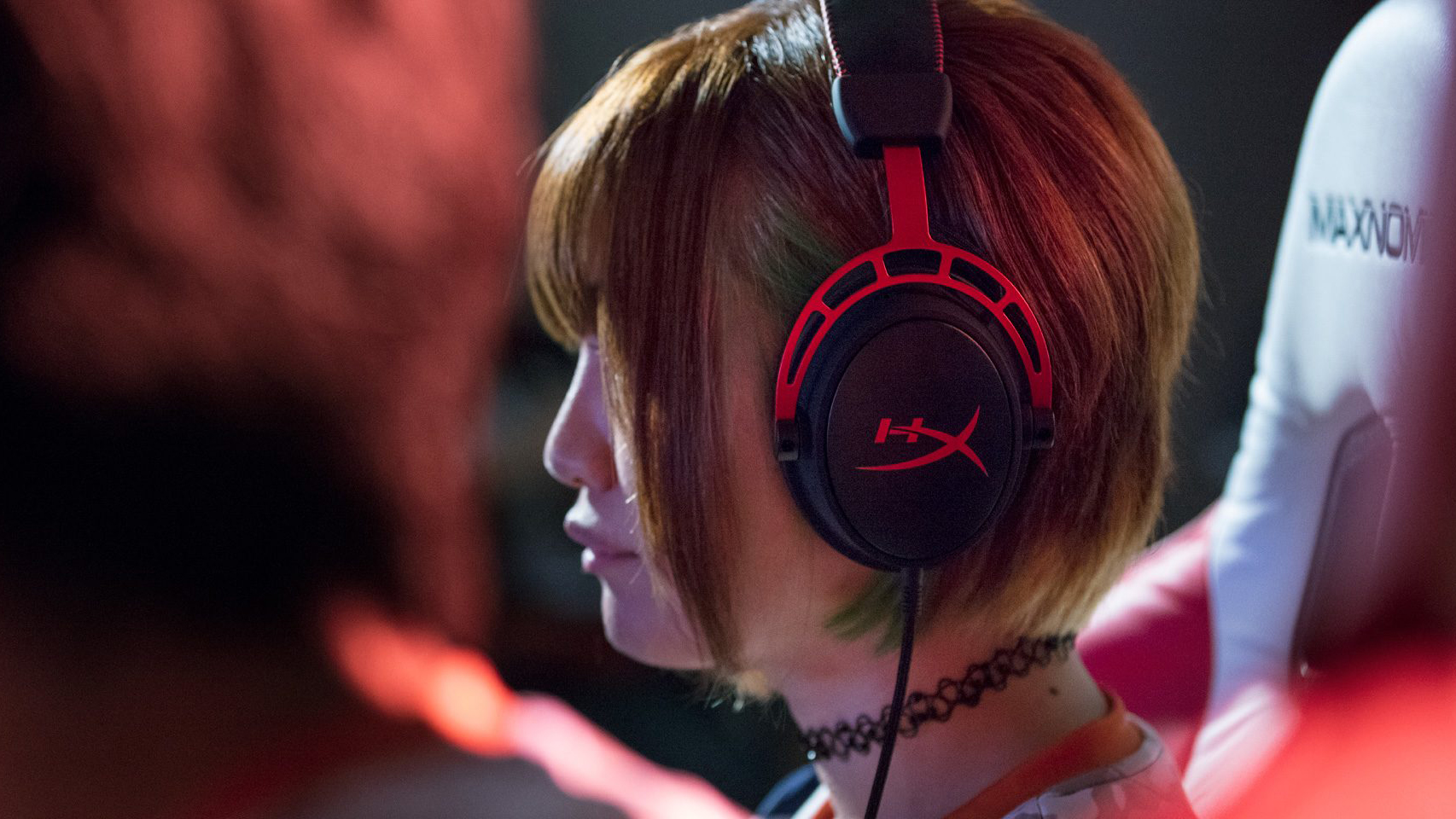
So how have we made our choices? We've picked headphones from across the very best manufacturers in business today, so you're able to see what all the biggest brands offer and – crucially – how they differ. It's a fast-moving market, but we'll help you stay on top of the latest developments and products.
Every gaming headset might appear to offer the same functions and features at first glance, but in fact every device is unique: the build quality and the fit of it, the comfort of the ear cups and the connection method, the features you get as part of the package... the list goes on.
Whether you're looking for a top-of-the-range model or something just to dip your toes into the gaming audio market, we've got all the bases covered with this new and improved guide to the best gaming headsets for 2026 and beyond. We update this guide on a regular basis too, so check back often.
Gaming headset jargon explained
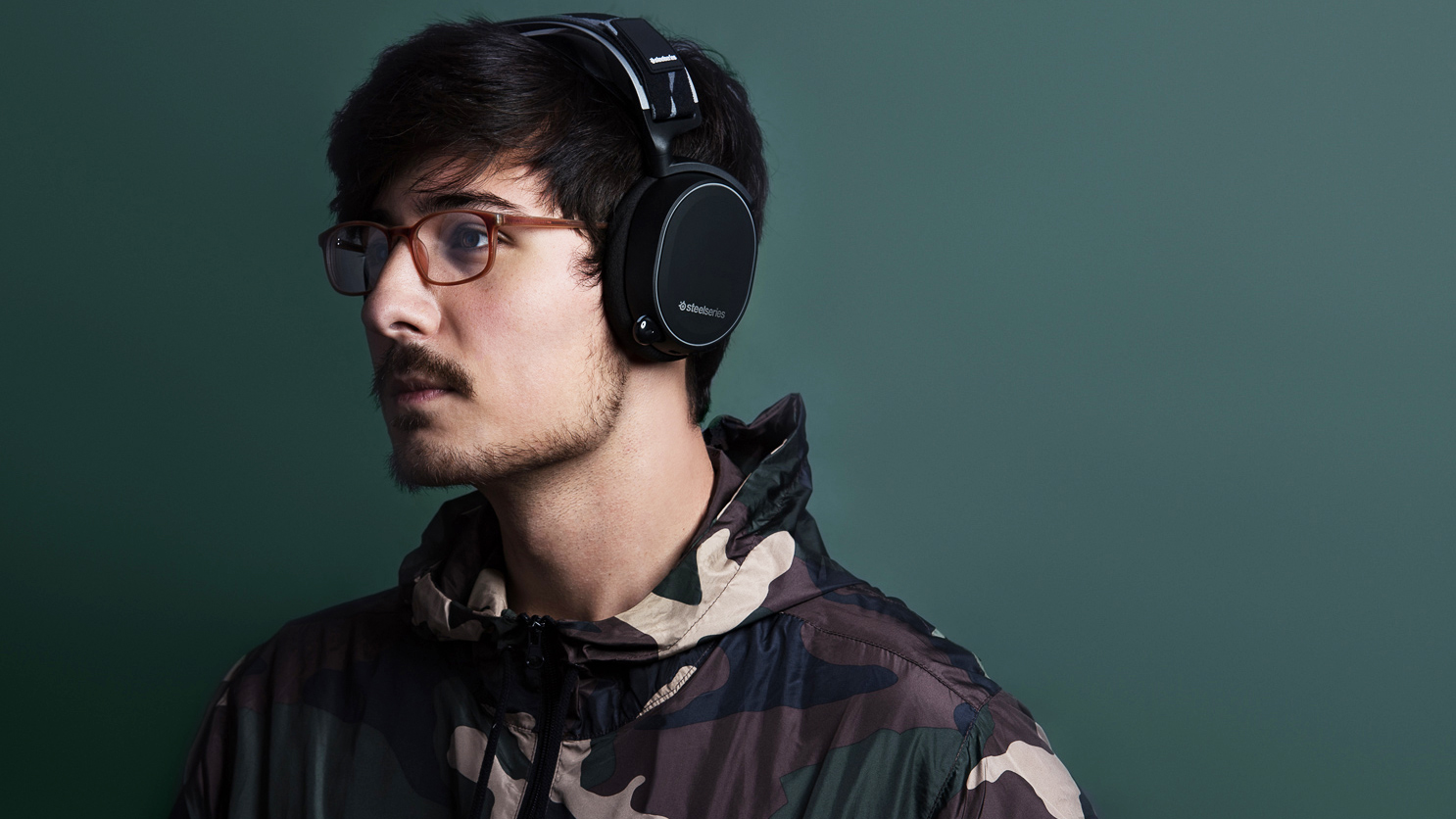
If you're new to the gaming headset market, or wearable audio products in general, then there's a fair bit of jargon that needs to be processed and understood. Right here T3 provides a small guide to some of the most important terms and phrases, in the aim to make it easier for each gamer to determine which headset will work for them, and which will not.
Type – There are multiple types of gaming headphone styles, but the two most common are over-ear and on-ear. Over-ear headphones have cups that fully encompass each year, and tend to be used on headphones with noise-cancelling technology and/or surround sound built in. On-ear headphones on the other hand have cups that sit on top the ears, and tend to be more compact and direct in terms of their audio delivery.
Drivers – The most important part of each gaming headset, drivers turn electrical signals into hearable sound pressure. In the simplest terms, the better and bigger the driver the better the sound quality will be. Drivers come in magnet, coil and diaphragm types, which determine how they work. Here at T3 we think, as a general rule, a good gaming headset should feature a 40mm or larger drivers.
Frequency response – This is important as it determines the entire range of audible sounds the gaming headset can produce. A wider range on paper indicates that the headset is probably more capable than one that has a smaller one, but it is not an indication of sound quality, just the potential of the headphones. Our top-rated gaming headset for PlayStation gamers, the SteelSeries Arctis Pro Wireless, has a frequency range of 10–40,000 Hz.
Noise cancellation – Noise cancelling technology has developed rapidly over the past five years and is now offered on a fair few gaming headsets. There is both active and passive noise cancelling tech, with active the more desirable. In basic terms, active noise cancelling works by recording environmental sounds around the gamer and then creating an inverse sound wave to cancel them out within the headset. The result is exterior environmental noise is cut out making in-game audio clearer. Passive systems, on the other hand, just look to block out noise and don't actively try to cancel it out.
Sound pressure level – Finally, sound pressure level (SPL) is, in simple terms, a way of determining just how quite or loud a set of gaming headphones can go. SPL is often linked to decibels, so simply look for 'dB SPL' in gaming headphone spec sheets. Most gaming headphones will offer between 90 and 105 max dB SPL.
How we test gaming headsets
T3's testing procedure for gaming headsets is detailed and authoritative. Firstly, we examine the package contents and build quality of the headset itself from a fit and finish point of view. We look at this stage for deficiencies in the product and overall package, or things of particular note.
Next up we test out the headset purely from an ergonomic point of view. So we wear the headset and examine its ability to be adjusted for different head shapes and sizes. We wear the headset for a prolonged period to ensure we know how it feels during long gaming sessions.
Thirdly, we then move onto testing the headset's audio reproduction and mic quality. This is done by using the headset in a variety of game types, such as FPS, RPG and RTS, as well as out of game for applications such as Amazon Music Unlimited, Disney Plus, YouTube and Microsoft Teams.
Lastly, we consider the gaming headset in terms of everyday usability from an experiential point of view. This stage is particularly important for headsets that advertise themselves as general purpose headphones as well as a gaming headset, so we wear them while commuting or on trips out.
When these four stages are complete, we then judge the headset compared to its contemporaries on the market, both in terms of its quality and its price point. It is then here that we finally bestow a star score on a gaming headset, with five stars being the best score a product can achieve.
FAQs
How light should my headset be?
A big variable when shopping for a headset is weight, and there's no easy answer for what the right number is in terms of grams. Often, the more premium a headset is price-wise the heavier it can feel, since it generally has more metal and other expensive components. That can be a slight trade-off, although it will generally mean plusher ear cushions to make up for it.
In our experience testing headsets, weight isn't the only variable in terms of comfort, but it's a good example of how trying on a headset before you buy it can be a huge help in narrowing down your choices.
Do headsets work with all consoles?
This is a problem that's getting better, but it's still always worth reading a headset's spec sheet carefully to see what consoles it works with. We don't like to blame anyone, but it seems like Xbox is the main culprit here, since Microsoft wants brands to pay for the license to work on its consoles.
This has long meant versions of headset with "X" in the name that work on Xbox as well as PC (and often on PlayStation, too), but things are getting better. More and more headsets now have toggles between Xbox mode and everything else, and some like the SteelSeries Arctis Nova Elite just use different plugs in their control stations to get around the issue.
Reviewer panel

Dave has been contributing to T3 and writing about gadgets for more decades than he'd really like to admit: and that means he's a reliable and trustworthy authority on all manner of tech, including gaming headsets. You'll find he's personally and thoroughly reviewed several entries on the list that we've put together above.

Once the Deputy Editor of T3 and now the Editor of PC Gamer, Rob has spent many an hour with a gaming headset wrapped around his ears. Audio quality while gaming is one of Rob's top priorities, and he knows top-tier sound when he hears it – so you can rely on the reviews that he's posted across the T3 site.

Carrie has been writing professionally for more than 25 years at this point, which means she knows what she's talking about when it comes to tech – and headphones in particular. She's passionate about audio quality across any source, from music to games, and brings an expert's level of knowledge to all of her detailed reviews.
Get all the latest news, reviews, deals and buying guides on gorgeous tech, home and active products from the T3 experts

Max is T3's Staff Writer for the Tech section – with years of experience reporting on tech and entertainment. He's also a gaming expert, both with the games themselves and in testing accessories and consoles, having previously flexed that expertise at Pocket-lint as a features editor.